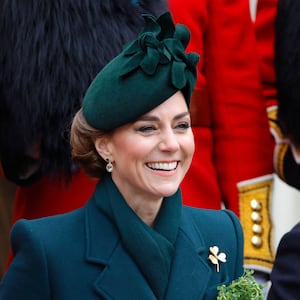The Palmetto State is another step closer to getting the top-designated cancer center it lacks as the Medical University of South Carolina's board voted to pursue a new hospital that aims to rival some of the nation's best. The new cancer hospital will be built on what is now essentially a parking area next to Rutledge Tower on MUSC's campus. It will become part of Hollings Cancer Center.
It is part of Hollings' push to reach the top cancer center designation, and the new facility will make it "so no one has to leave Charleston" for advanced cancer care, said Dr. Don Johnson, who chairs the board's Hollings committee. South Carolina does not have a National Cancer Institute Comprehensive Cancer Center , unlike neighbors North Carolina, Georgia and Tennessee.

Hollings is a NCI-designated Clinical Cancer Center, one rung below, of which there are nine in the country. Hollings just received a renewal of this status last year from the NCI, which provides nearly $11 million in a five-year grant to support research and its infrastructure. There are 57 Comprehensive Cancer Centers in the country, which receive a higher level of support, up to $14 million a year in some cases.
But Hollings has a plan to apply to become a Comprehensive Cancer Center during its next NCI grant renewal cycle in 2028. That effort is backed not only by its board but by $15 million next fiscal year from the state Legislature if what is in the current budget proposals is approved. "It's an important goal for us," said Dr.
Raymond N. DuBois, director of Hollings. The project is part of the board's push to elevate Hollings' status and to have a hospital that "rivals" famed cancer providers M.
D. Anderson Cancer Center in Houston and Memorial Sloan Kettering Cancer Center in New York City, Johnson said. MUSC's leadership, after the April 11 approval, was tasked with immediately beginning the planning and design of the hospital.
There is no estimated cost yet. The new cancer hospital will likely have 50-100 beds for inpatients but will also house outpatient cancer treatment, which is the majority of cancer clinical services, Dr. Patrick Cawley, CEO of MUSC Health.
"What we want to do is pull it all together in one," he said. The trustees also approved moving forward with the demolition and planning for a new building at 334 Calhoun St. in downtown Charleston.
The former Charleston Center property had been Charleston County's medical services building before it was sold to a developer for $19.5 million in March 2022. While MUSC at the time said it had no interest in it, MUSC Health purchased the parcel for the same amount in late December 2024, property records show.
That site will eventually house most of the clinical services currently being provided in Rutledge, which will then be renovated for other purposes, Cawley said. The 334 Calhoun site had been under consideration to also house the new cancer hospital, but the new site is actually better because it is closer to MUSC's main hospital, Cawley said. "For patients that need ICU care or certain kinds of neurosurgery care that have cancer, they need to go across the street to the main hospital," he said.
Because the site is essentially a parking lot, work can begin on the new hospital even before other services move out of Rutledge Tower, Cawley said. The new hospital and clinical services is an important part of the push to advance Hollings to the next level. To get there, the cancer center will generally have to increase the "depth and breadth" of its cancer research, train new cancer researchers and doctors, broaden its community outreach and show it is making a difference in outcomes for its patients, DuBois said.
Because Hollings defines its patient base as the entire state, that includes more clinics and centers around the state. MUSC and Hollings recently announced a new cancer center in Florence, and a clinic in Nexton in Summerville just began seeing patients this week, said Dr. Jason Newman, chief of the Oncology Integrated Center of Clinical Excellence at Hollings.
Orangeburg will be another focus, DuBois said. "We have to have a presence across the state" in cancer care, said Dr. David J.
Cole, president of MUSC. Those sites will also allow Hollings to extend some of its clinical trials out across the state. Attaining comprehensive status would make Hollings more attractive for clinical trials, DuBois said.
On the research side, the new cancer hospital will also help Hollings find more lab space to recruit more researchers by freeing up space in its current building being used for clinical services, DuBois said. Hollings has reached $26.2 million in grants from the NCI and, unlike some other centers, has so far not lost any, he said.
Hollings expects new grants to come in and is well on its way to its goal of having $30 million in NCI grant funding by the time it applies for comprehensive status, DuBois said. Those clinical trials can be important for South Carolina patients. After taking over the directorship in 2020, DuBois was able to start a Phase 1 clinical trials unit, which is for cancer therapies first being tested in humans.
Many of those drugs are tried first in patients who have not been helped by standard therapies so "they can enroll in those trials and get newly developed drugs, which in some cases work really well," he said. "Not always, but at least they'll have that opportunity." Hollings already has a service that looks at the genetic testing of a patient's cancer and can advise doctors on whether there are new treatments for the precise mutations those patients have.
Expanding that, particularly to areas where services are lacking, would also benefit patients across the state, DuBois said. "It's something that we would like to make available to everybody," he said..
Health

MUSC pursuing top-tier cancer center, hospital and research that SC currently lacks

The Medical University of South Carolina's Hollings Cancer Center is recognized as a clinical center but has yet to achieve Comprehensive Cancer Center status. It will build a new hospital to help it achieve that top-tier designation.















